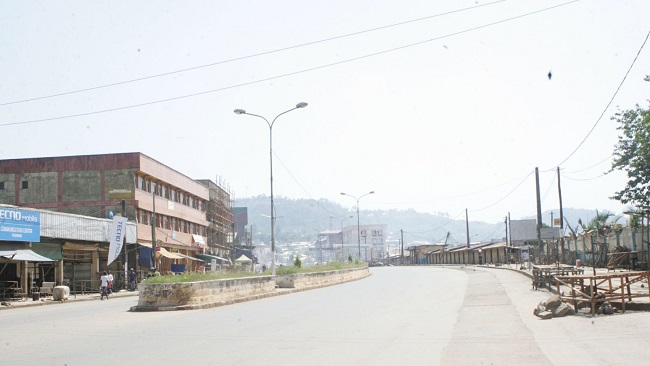Southern Cameroons Crisis: Bamenda on lockdown after sentencing of leaders
Capital of Cameroon’s North West region, Bamenda, is experiencing a social shutdown following eruption of violence after the recent sentencing of separatist leaders by a military court.
According to a BBC witness, businesses have remained closed whiles people have also remained at home for fear of getting caught in clashes.
Reports said after Tuesday’s sentencing of Sisuku Ayuk Tabe and nine others to life imprisonment by a military court in Yaounde, fighting broke out between suspected rebels and state security forces.
Social media reports also indicate that people are voluntarily deserting the north west region to other parts for fear of attacks.
Bamenda and Buea, capital of the adjoining South East region, make up the Anglophone region of the country. The twin regions have been center of a security crisis between government and separatists since 2017.
For months, separatists “forced” residents to observe an unofficial social shutdown on Mondays. During the last elections, there were clashes between government forces and separatists.
There has been a humanitarian crisis that has spiraled from the situation as people in the region continue to flee from the violence – some to other parts of the country, others into Nigeria.
The United Nations estimates that at least 2, 000 people have been killed and more than 530,000 displaced since fighting broke out. It says about 1.3 million people are in need of assistance.
In 2018, the government installed a new military headquarters in Bamenda in what analysts said was a sign that authorities were taking the fight to separatists elements. There have been reports of burning down of villages and abductions in the region.
The government is on record to have hinted about dialogue to end the situation but very little by way of concrete efforts have been seen.
Switzerland’s ambassador to Cameroon in July disclosed that his government is trying to negotiate a peaceful end to the separatist crisis in which an estimated 2,000 have died.
Ambassador Pietro Lazzeri said the negotiations are being guided by the Swiss Federal Department of Foreign Affairs. “Over the last months we have been trying to create dialogue among the parties because we have the acceptance of the parties.
“We are doing it because we have a certain expertise. We are referees, we are not the players. We need the willingness of the parties in order to build the dialogue,” Lazzeri said on Cameroon’s state media over the weekend.
“My country intends to find a peaceful and lasting solution to the crisis that has been claiming so many lives in the restive English-speaking regions of Cameroon. Besides the dialogue, we have been providing humanitarian assistance to the hundreds of thousands of people affected by the separatist war,” he added.
Source: Africa News





